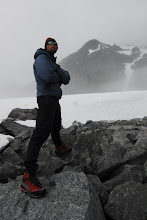






Todra Express
Africa rushes past in midnight windows. The night train chugs across Morocco from the coastal city of Tangir, to Marrakech. Jessica, Rigel, and I sleep in a small cabin on red plastic mattresses. Dreaming the miles away kills two birds with one stone. Rest and progress combined. When we step out into the glistening and modern train station we casually sip espresso and talk about plans while the world outside stirs in hazy sunrise. A call to prayer echoes through the city.
Hitting the streets, we stick out like three very sore thumbs. A roundabout taxi ride puts us in a chaotic bus station. Our destination is the Todra Gorge, a narrow chasm of vertical, sand colored limestone twelve hours bus ride south. A single screwdriver keeps the bus running as we creep across the High Atlas Mountains and into the vast deserts of southern Morocco. We sweat from the heat, from the men arguing and pointing fingers in the middle of the bouncing bus, and of course, from being different.
“I am a guide for climbing and hiking. Where are you staying?” Before we even arrive in Tinerhir, the launching point for The Todra Gorge, local men try persistently to get my Dirhams (local currency) in change for room and board. Everyone’s house was “only” and few kilometers from the climbing and the “best” deal one could find anywhere.
When we do finally stretch our sweaty backs and shoulder our bags at the end of the bus journey the scene changes little. Everyone still wants our Dirhams and we fight our way across a busy street towards a ratty ATM. I feel many eyes. Most I don’t trust, but we need a place to rest and a ride into the Gorge.
“I feel really good about Nazi Jens. I think we should stay at his riad.” Although I was skeptical, Jessica has an amazing sense for people and their character. Soon we twist up windy roads into a narrowing canyon of red gritty rock. “As Is”, one of Morocco’s hottest pop artists hammers in the radio. Nazi talks to us about his love of the land and his people, the Berbers. Morocco’s native inhabitants, many Berbers still live nomadically in the deserts and mountains of their beautiful country.
Two hours later we were enjoying “Berber whiskey” (green tea with sugar and mint) in Nazi’s open-air riad. A cool breeze flapped the guidebook pages as we ate and talked to our new friend Hassan about his hand drawn topos and his experience on the gritty cliffs of the Todra. Moonlight brings massive walls out of the shadows as we feast on couscous and veggies. We can’t wait to climb.
Climbing in the Todra Gorge started in the 1960’s and several locals I spoke with remember being wide-eyed children when those first rope and piton laden explorers walked through their village. Now days, most people climb on the hundreds of quality sport climbs that are both in the Gorge proper and in the surrounding hills. Although the Todra has received some publicity in the past few years I was surprised to meet very few climbers. Amazing routes rise chalkless into the sky. Birds soar on backwater breezes above empty walls of tiger stripped limestone.
Despite typical third-world food illness we sampled a variety of amazing routes in the following days. Enjoying coffee, bread, jam, and yogurt with new friends on the patio of the riad became the morning ritual. When the sun rose hot and high we’d steal off into the Gorge, cooling breezes rushing between its massive walls. The climbing was magnificently technical, the moves thoughtful and the footholds small. The neglected routes engaged all the skills of onsight climbing. Holds were rarely visible in their gritty brown camo and without chalk and boot rubber, one had to rely on monkey sense to pick a path through the spacey bolts.
One of the best cliffs we visited was called Les Jardins D’ete. It sat like a king on hillside, its 400 feet of fiery rock steeply rolling into a dark blue sky. Not as visited as some walls this crag had a peaceful, quiet feeling to it. Down in the chasm of the gorge we could make out the vendors, the animals, and the general hustle and bustle. The action seemed to be squeezing out of the narrow canyon on both ends, an interesting clash of wilderness and culture.
“Insallah!”. Hassan waves from the shaded patio of a teahouse as Jessica and I walk back to the riad after our last day of climbing. I almost stop in my dusty tracks, finally realizing my most important lesson from the Todra and its people. Insallah is a common phrase in the Muslim world. It means “God willing” or “if God wills it”. I had heard it before as we all have, but never gave it much thought. This day, after telling Hassan that we want to return again, I realized that he was right. To make plans a year or two out as many of us climbers do (sometimes out of necessity), is a shallow endeavor without recognizing the power of time that separates us from that trip or that climb. I look around me and take in the humanity of the Todra. A child runs barefoot through the muddy banks of the river and then runs to me, asking for money and food. A hunched old man shuffles through the dust as a diesel truck barrels past, the created gust nearly knocking him off his feet. A candy wrapper tumbles across the street and is caught in a thorny green bush. In this world, it is easy to realize that each new day is a gift. To know the happenings of tomorrow or the next year is a foreign idea when the battle to survive rages daily.
Snapping back to reality I jog to catch up with Jess, already a hundred meters ahead. We talk of our return as we exit the gorge and enter the rolling palmery that surrounds our riad. We dream of more climbs, more new friends, and more lessons learned in a world so different from our own. For now we need to focus on packing our bags and making the night bus out of Tinerhir. Transportation is a little unreliable here in Africa, but I think we will make it. Insallah, of course.


